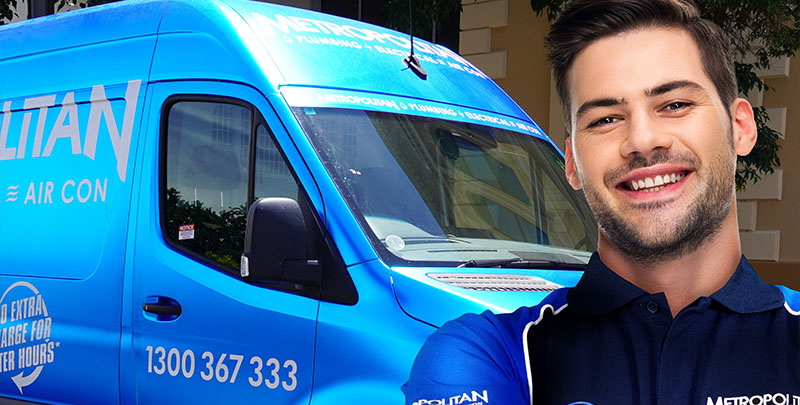For most of us, a burst pipe in the kitchen or bathroom can really put a damper—pun intended—on our day and our home.
Beyond the mess and the repair costs, a burst pipe often signals other underlying plumbing problems that need attention. It’s crucial to act quickly and thoroughly to prevent further damage and avoid more serious issues down the line.
While the destruction and increased water bills from a damaged pipe are bad enough, one of the biggest concerns is minimizing water damage to your property. In this article, we’ll walk you through some practical steps to dry out and restore your home after a burst pipe incident.
Why Do Burst Water Pipes Happen?
Before diving into what to do when a pipe bursts, it’s helpful to understand why it happens in the first place. Common causes include:
- High water pressure – Excessive pressure on the pipes can weaken them over time, eventually leading to a rupture.
- Freezing temperatures – When water freezes inside pipes, it expands and can cause them to crack or burst.
- Old or corroded pipes – Over time, pipes can deteriorate, making them more prone to leaks or breaks.
Other factors like hard water, tree roots invading pipes, or poor installation can also contribute to pipe failures. No matter the cause, a burst pipe is a serious issue that requires immediate action.
1. Stay Safe and Turn Off the Electricity
Your top priority when dealing with a burst pipe should always be safety. Water and electricity don’t mix, so before starting any cleanup, turn off the main power supply if possible.
If the leak is near electrical appliances, move them away once the power is off. This not only protects you but also prevents potential hazards like electrical shocks or fires.
2. Shut Off the Water at the Source
After ensuring your safety, the next step is to shut off the main water supply. This will stop the flow of water and prevent further damage.
The main water valve is usually located near your meter or in the front yard. Once you’ve turned it off, you can relieve pressure by opening cold taps, flushing toilets, and turning on hot water taps to drain the system.
3. Contain the Water
Use a large bucket to catch the water coming from the burst pipe. Keep a spare bucket nearby for quick changes. While this is just a temporary fix, it helps prevent more water from spreading and causing additional damage.
4. Call an Emergency Plumber
Once the water flow is under control, it’s time to call a professional plumber. They can assess the damage, make necessary repairs, and check for other potential issues in your plumbing system.
A reliable emergency plumber can handle all types of pipes, including PVC and copper, and will work efficiently to get your system back in working order.

5. Remove Affected Items
Move any furniture, electronics, or important documents away from the affected area as soon as possible. This helps prevent mold growth and preserves your belongings.
Some items may be too damaged to save, especially if they’ve been soaked for a long time. Removing them early can also help speed up the restoration process.
6. Dry the Area Thoroughly
Use towels, mops, or a wet-dry vacuum to remove standing water. Then, use fans and dehumidifiers to speed up the drying process. Open windows and doors to improve airflow and reduce moisture buildup.
7. Contact a Professional Restoration Service
If the water damage is severe, consider hiring a professional water restoration company. They have the tools and expertise to fully clean and restore your home.
Also, check your insurance policy to see if it covers plumbing repairs and water damage. Many policies do cover such incidents, especially if they’re sudden and unexpected.
Prevention is Better Than Cure
While it’s important to know how to handle a burst pipe, the best approach is to prevent it from happening in the first place. Regular maintenance, checking water pressure, and inspecting your pipes can go a long way in avoiding future issues.
Scheduling routine inspections with a licensed plumber can help identify small problems before they become major ones. Taking these steps ensures your home stays safe and your plumbing system runs smoothly.
Burst Pipes Be Gone!
Dealing with a burst pipe can be stressful, but being prepared and acting quickly can make a big difference. Whether it's a minor leak or a major break, knowing what to do can help minimize the damage and keep your home safe.
We encourage you to stay proactive. Schedule a plumbing inspection with a qualified professional to ensure your system is in good shape. Prevention is always better than trying to fix things after the fact.
For more tips and assistance, reach out to the experts at Metropolitan Plumbing. We’re here to help you keep your home dry and protected.
Please note: This blog post provides general advice only. Regulations vary by location, so always consult local authorities or a licensed professional before taking any action. See our Terms & Conditions for more information.
Rubber and plastic processing aids are fine chemicals specially used in the processing of polymer materials. They have small batches, many varieties and different properties, but they play a very important role in improving the processing performance of resins, improving the practicability of products, and imparting new properties to products. effect.
Curekind Processing Promoters series, including Curekind 55P, Curekind 50P, Curekind ST, Curekind PEG4000 etc.
Rubber Processing Promoters,Specialty Polymer Rubber Accelerator, Polyethylene glycol 4000
Ningbo Actmix Rubber Chemicals Co.,Ltd. , https://www.predispersedchemical.com